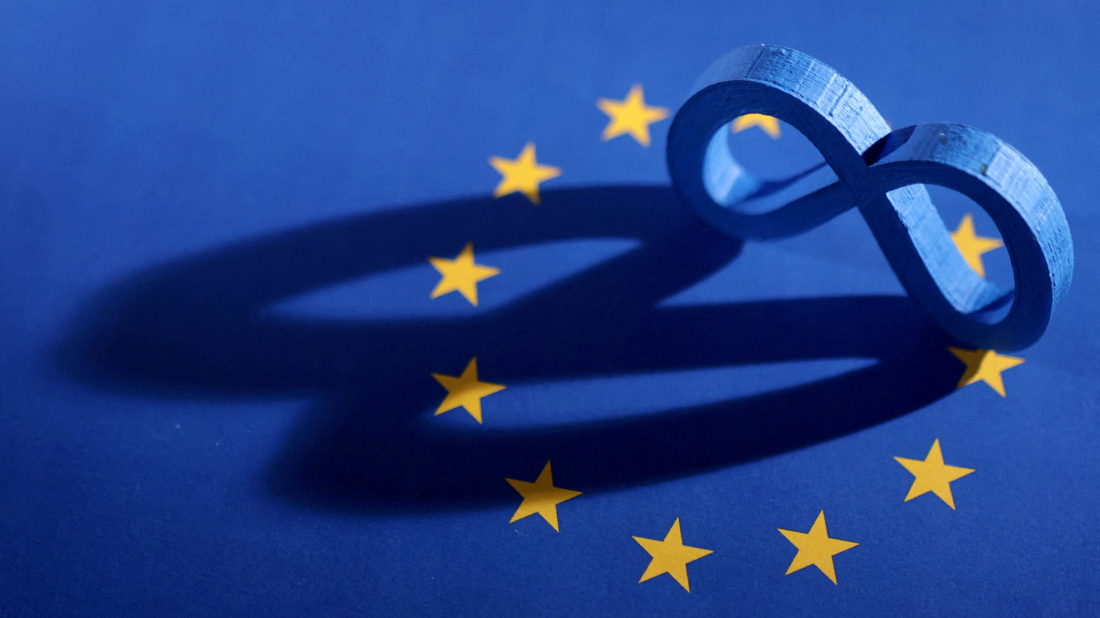Day five of Middle East conflict as U.S. submarine sinks Iranian warship
A U.S. submarine strike sank an Iranian warship off the coast of Sri Lanka, leaving at least 80 dead, the country&...

Meta Platforms said it will suspend all political, electoral, and social issue advertising across the European Union starting in October, citing "unworkable requirements" under the bloc’s new transparency rules.
The EU’s Transparency and Targeting of Political Advertising regulation (TTPA), which aims to combat foreign interference and disinformation, officially entered into force in April 2024, with most provisions taking effect on Oct. 10.
In a statement, Meta — which owns Facebook, Instagram, WhatsApp, and Threads — said the legislation “introduces significant operational challenges and legal uncertainties” and would pose “an untenable level of complexity and legal uncertainty for advertisers and platforms operating in the EU.”
Under the new rules, political advertisements must include a transparency label disclosing key information, such as the sponsor, links to elections, the amount spent, and the targeting techniques used.
Meta noted that it has enforced political ad transparency measures since 2018, including requiring advertisers to undergo an authorisation process and storing political ads in a public archive. However, it said the new rules go too far.
“Because of the restrictions,” Meta added, “people will be seeing less relevant ads on our platforms.”
The company clarified that political figures and users in the EU will still be allowed to post and debate political topics on its platforms.
Google had already announced a similar move in November 2023, also opting to ban political ads across the EU in response to the TTPA.
The changes apply only to Europe.
The European Commission has launched several initiatives to counter foreign interference, including investigations under the Digital Services Act (DSA), which requires platforms to address illegal content and disinformation.
In April, Meta’s Facebook and Instagram platforms became subject to formal DSA proceedings over suspected violations related to deceptive advertising and political content. That investigation is ongoing.
Concerns over election interference have mounted in Europe.
On 6 December, Romania became the first EU country to cancel an election due to foreign interference, following reports of disinformation campaigns on TikTok.
U.S. President Donald Trump said the U.S. military has enough stockpiled weapons to fight wars "forever"; in a social media post late on Monday. The remarks came hours before conflict in Iran and the Middle East entered its fourth day.
U.S. first lady, Melania Trump chaired a UN Security Council meeting on children and education in conflict on Monday (2 March), a move criticised by Iran as hypocritical following U.S. and Israeli strikes that triggered a UN warning about risks to children.
A torpedo from a U.S. submarine has sunk an Iranian warship off the coast of Sri Lanka, U.S. Secretary of Defense, Pete Hegseth told reporters. The Sri Lankan navy carried out a rescue operation for dozens of sailors in the wake of the strike.
The U.S. embassy in Riyadh was hit by two drones resulting in a limited fire and some material damage, the kingdom's defence ministry said in a post on X on Tuesday, citing an initial assessment.
Shahid Motahari Sub-Speciality Hospital in northern Tehran and parts of the Golestan Palace were bombed on day two of the U.S.‑Israel strikes. AnewZ Touraj Shiralilou is in Iran's capital city and said that the facility was flattened in an airstrike.
U.S. Defense Secretary Pete Hegseth says the United States is making gains in its conflict with Iran after a key Iranian naval target was destroyed, confirming that the strike was carried out by a U.S. submarine off the coast of Sri Lanka. Rescue efforts are now under way for the ship’s crew.
Start your day informed with AnewZ Morning Brief. Here are the top news stories for the 4th of February, covering the latest developments you need to know.
Strikes across the Middle East are intensifying, fuelling travel disruption, driving up global energy prices and forcing diplomatic missions to shut their doors.
U.S. President Donald Trump has said the United States has a “virtually unlimited supply” of munitions and is capable of sustaining military action indefinitely, as the conflict with Iran entered its fourth day.
The United Nations has called for an investigation into a deadly attack on a girls’ primary school in Iran, which Iranian officials say has killed more than 100 children. The U.S. has said its forces “would not” deliberately target a school.
You can download the AnewZ application from Play Store and the App Store.

What is your opinion on this topic?
Leave the first comment